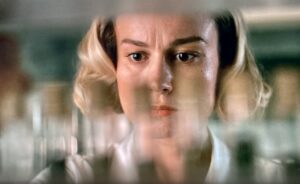In Oct. 2006, the New Jersey emo rock band My Chemical Romance (MCR) released their third studio album “The Black Parade.” It is a rock opera that tells an enrapturing story over the course of its fourteen tracks and is widely considered to be the band’s magnum opus by both fans and critics alike.
The band consisted of lead vocalist Gerard Way, bassist Mikey Way, lead guitarist Ray Toro, rhythm guitarist Frank Iero and drummer Bob Bryer. After the critical and commercial success of their 2004 album “Three Cheers for Sweet Revenge” the band wanted their next project to be something anthemic and timeless and in doing so they exceeded all expectations.
The overarching story of the album revolves around the cynical lead character known as “The Patient” suffering from cancer as he reminisces on the past events leading up to his death. The mix of rock genres help to create a grand theatrical backdrop for its listeners to be pulled into.
The opening track “The End” starts off somber with a heart rate monitor being heard beeping. Gerard Way takes on the role of the patient in a hospital room as he remembers being an outsider to the world around him. Eventually the track ascends into a crescendo of vocal harmonies and guitar riffs with heavy influence from older rock opera projects such as Pink Floyd’s 1979 album “The Wall.”
What immediately follows is the track “Dead!” which opens with a heart monitor going flatline and a widely upbeat guitar solo to create a purposefully contrasting mood as the patient has just received news that he will die in two weeks. The track “This Is How I Disappear” follows the patient recollecting on his past enlistment in war.
“The Sharpest Lives” follows the patient’s downward spiral as nothing in life seems to matter and he would rather live his last remaining days on edge. The album’s story and atmosphere becomes much more sinister with its rooted emo rock and pop punk instrumentals.
“Welcome to the Black Parade” is the main focal highlight of the track list and is unarguably the most famous song in MCR’s musical catalog with its iconic opening piano melody. In the song the patient recollects his earliest memory of his father taking him to see a parade in the city. The titular black parade is symbolic not only of the most optimistic memory that the patient has before dying but also passage into the afterlife without fear of being forgotten.
“I Don’t Love You” is a soul crushing ballad about the patient’s past heartbreak from a relationship earlier in his life and the anger that comes with it. The next track is “House of Wolves” where the patient is dragged into hell and made ashamed of his past sins in life and the guilt that comes with it. “Cancer” uses a more simplistic piano melody to touch upon the patient’s experience in chemotherapy.
The album also incorporates many outside elements and sampling. The track “Mama” features the guest vocals of actress Liza Minneli playing the character Mother War who is the patient’s inner representation of societal ills. The harrowing “Sleep” uses a sampled recording of Gerard Way explaining the night terrors he experienced while the band recorded the album at Paramour Mansion.
Another highly iconic MCR song is “Teenagers” which takes a detour into the patient’s innate mockery of adults who fear the next generation of teens whom they raise. The album raps up with the final two tracks “Disenchanted” and “Famous Last Words” which leave the demise of the patient and the meaning of his life up to interpretation. One more bonus track included is “Blood” which touches on the doctors attempting to resuscitate the dying patient in a tongue-and-cheek manner.
The album and its music has remained a cornerstone of a generation. MCR has recently reunited for a tour from May of 2022 to March of 2023 after a two year delay from the COVID-19 pandemic. The story within “The Black Parade” and the overall atmosphere and musical production is nothing short of flawless.











